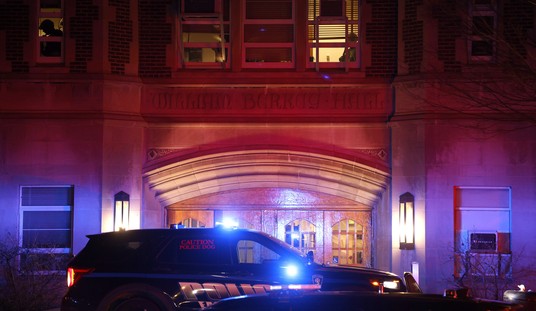The Texas Supreme Court ruled on Friday that state judges can refuse to perform same-sex wedding ceremonies if it violates their “sincerely held religious beliefs.”
In a unanimous decision, the court amended the Texas Code of Judicial Conduct in a way that would mean judges would not face sanctions if they do not officiate a same-sex union.
From Kera News:
Texas judges who decline to perform a wedding ceremony based on a “sincerely held religious belief” do not violate the state’s rules on judicial impartiality, according to a comment the Texas Supreme Court added to the state’s judicial conduct code Friday.
The high court’s comment on Oct. 24, effective immediately, could have statewide implications for gay marriage and potentially play a role in a federal lawsuit attempting to overturn the U.S. Supreme Court decision that legalized gay marriage.
The rule change appears to answer a question of state law that the U.S. Fifth Circuit Court of Appeals posed to the Texas Supreme Court in April, which was prompted by a lawsuit challenging the State Commission on Judicial Conduct’s now-withdrawn sanction of a Waco judge who refused to marry gay couples while continuing to marry straight couples. The plaintiff in that suit, a North Texas county judge, sued saying he was afraid he could face the same punishment.
Texas Supreme Court amends judicial code, allowing judges to refuse same-sex weddings on religious grounds without sanction—upholding faith against state-forced violation of God’s marital blueprint.
— Tyler Fletcher (@FloridianFletch) October 29, 2025
And He answered and said, “Have you not read that He who created them from the… pic.twitter.com/6QBLWn8Srl
The case centered on Judge Dianne Hensley, a justice of the peace in Waco, who refused to faciliate a same-sex wedding. The Texas judicial commission issued a public warning against her. She responded by filing a lawsuit.
Umphres has tried at various points to not have to marry gay couples. After the Waco case, Umphress sued the judicial commission arguing that he was worried he would be sanctioned because he planned on campaigning against gay marriage. https://t.co/EuVup7ddPk pic.twitter.com/7re2yFwaCd
— gwen howerton (@kissphoria) October 28, 2025
A trial judge tossed Hensley’s legal action over procedural matters. An appeals court later upheld this ruling. However, the Texas Supreme Court revived the lawsuit to consider the dispute over religious freedom.
Recommended
Hensley was not the only judge to sue the judicial commission. Judge Brian Umphress, a Jack County judge, also refused to perform these ceremonies on religious grounds. Even though he had not been sanctioned, he filed a preemptive lawsuit in 2020. A federal judge later dismissed his case, but the U.S. Fifth Circuit Court of Appeals asked the Texas Supreme Court to settle the matter.

























